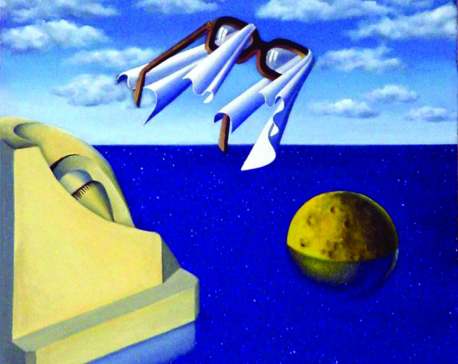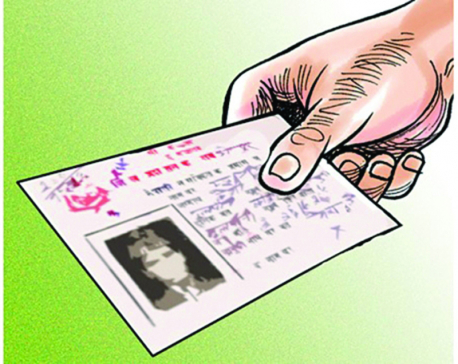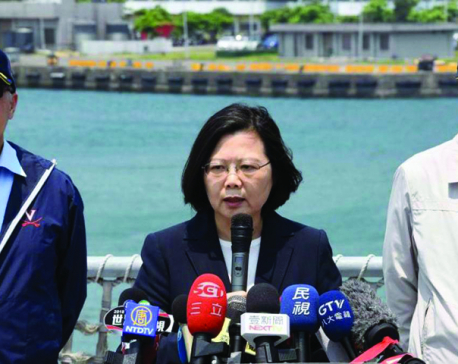
OR


Anne O Krueger
Anne O Krueger, a former World Bank chief economist and former first deputy managing director of the International Monetary Fund, is Senior Research Professor of International Economics at the School of Advanced International Studies, Johns Hopkins University, and Senior Fellow at the Center for International Development, Stanford Universitynews@myrepublica.com
Its unique governance structure allows both the Puerto Rican government and the US federal government to blame each other for the island’s plight
BALTIMORE – Puerto Rico is once again in crisis, both politically and economically. A United States territory with more than three million people, it has a larger population than many US states. But its population and real (inflation-adjusted) output have been falling since 2006. More than half of native-born Puerto Ricans alive today have left the island, most of them for the US mainland. The territory’s per capita income is around half that of the poorest US state, Mississippi.
While the Puerto Rican economy reached dire straits in 2016, its problems go back much further. For the past decade, successive governments promising balanced budgets have consistently been forced to borrow after their estimates proved overly optimistic. Eventually, Puerto Rico was unable to meet its debt-servicing obligations. By 2015, its per capita debt was more than $16,000, compared to the 50 states’ average of $1,473, and its government still had large unfunded obligations.
Then, in June 2016, the US Congress passed PROMESA (the Puerto Rico Oversight, Management, and Economic Stability Act), which allowed Puerto Rico to enter quasi-bankruptcy proceedings under the supervision of a newly created Financial Oversight and Management Board. The FOMB would approve the territory’s budgets. In 2017, the island defaulted on its debt, and there have been legal battles ever since.
The Puerto Rican economy had a number of structural problems before 2016. But the FOMB, as the name implies, was not empowered to address them and could not force the commonwealth’s government to do so. Worse, just as the FOMB began its work, Hurricanes Irma and Maria struck the island in 2017, weakening the economy further. The electric power grid was knocked out, and the publicly owned electric utility, PREPA, having lost money for years, was unable to muster an adequate response. In addition to leaving some residents without power for almost a year, the storms reduced road access and prevented the delivery of humanitarian aid for weeks.
Now a political crisis has exploded. The proximate cause was the release of private messages in which the governor, Ricardo Rosselló, referred to the victims of Hurricane Maria and other groups in disgraceful and degrading terms. Rosselló has now resigned. But corruption charges and poor economic performance have been fueling widespread public discontent across the island, prompting the resignations of several other senior officials.
Like its economic weaknesses, Puerto Rico’s political problems run deep. Its unique governance structure allows both the Puerto Rican government and the US federal government to blame each other for the island’s plight. When the federal government extends the earned income tax credit (EITC) to low-income earners, it does so only for those on the US states, not for Puerto Ricans. Though the Affordable Care Act (Obamacare) actually does extend Medicaid to eligible Puerto Ricans, the island’s federal block grant is too small to cover the costs (and the US Congress has since withheld $12 billion, owing to corruption charges).
Moreover, the island is subject to the 1920 Jones Act, which, by requiring it to use US-owned and -operated vessels for shipments to and from the US mainland, makes its shipping costs much higher than those of its Caribbean neighbors. And despite its low income, Puerto Rico is subject to the federal minimum wage. As a result, many workers are unable to move out of the informal sector into the formal sector.
But the federal government can also point to failures of Puerto Rico’s own making. For example, the island’s labor laws require employers to award annual bonuses worth a month’s pay, which raises the minimum wage above that on the mainland. Puerto Ricans also benefit from overly generous policies on annual leave, sick leave, and severance payments. Furthermore, the island’s land registry is woefully outdated. And in the 30 years after 1980, the authorities increased the number of teachers by 25 percent, even though the number of students had fallen by at least the same proportion. This increase has contributed to mounting pension liabilities.
Unless budgetary issues are directly involved, the FOMB is not authorized to require that the Puerto Rican government fix its egregious structural problems. This has led to constant clashes, with the FOMB even suing the governor for allowing municipalities to transfer their pension obligations to the territory.
The Puerto Rican economy has been slow to recover from the hurricanes of recent years. But even if aid were to produce a year or two of economic growth, the island’s political and economic problems would continue to resurface until the underlying structural issues are resolved.
The US government should consider extending the EITC to Puerto Rico, exempting the island from the Jones Act, and permitting flexibility on the minimum wage. And for its part, Puerto Rico needs to adjust its overly generous labor laws, to bring workers into the formal sector. It also needs to strengthen and expand its oversight capacity to reduce corruption and prevent waste, fraud, and abuse. Many additional structural reforms need to be undertaken.
A good crisis, it is said, should never go to waste. Puerto Rico has multiple crises, all of which demand that it focus squarely on its deeper structural problems. Only by addressing them can it improve its long-term prospects and ensure both political and economic stability in the future.
Anne O. Krueger, a former World Bank chief economist and former first deputy managing director of the International Monetary Fund, is Senior Research Professor of International Economics at the School of Advanced International Studies, Johns Hopkins University, and Senior Fellow at the Center for International Development, Stanford University
© 2019, Project Syndicate
www.project-syndicate.org
You May Like This

Erosion of reason
Why cannot Nepali intellectual community give a clear opinion on pressing political issues? What has led to this intellectual slackening? Read More...

Rage and reason
We need to bring around every actor from the plains as well as the hills to agree on some basic... Read More...

Looming Taiwan crisis
Crisis over Taiwan could wreck China’s relations with the US and many of its neighbors and rock an already shaky... Read More...







Just In
- NRB to provide collateral-free loans to foreign employment seekers
- NEB to publish Grade 12 results next week
- Body handover begins; Relatives remain dissatisfied with insurance, compensation amount
- NC defers its plan to join Koshi govt
- NRB to review microfinance loan interest rate
- 134 dead in floods and landslides since onset of monsoon this year
- Mahakali Irrigation Project sees only 22 percent physical progress in 18 years
- Singapore now holds world's most powerful passport; Nepal stays at 98th











Leave A Comment